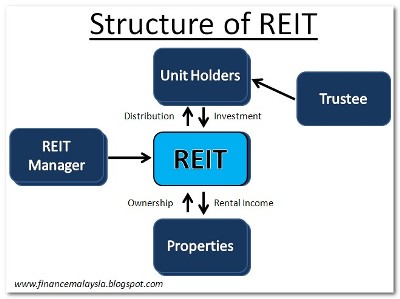REIT So Sweet: Investors Reconsider Real Estate Investment Trusts
By Jotham Sederstrom March 5, 2013 2:00 pm
reprintsTax-advantaged Real Estate Investment Trusts are likely to gain favor among investors, boosted by increasing tax rates, recovering real estate prices and faster-than-anticipated growth, according to Paul Becht, audit partner at Holtz Rubenstein Reminick LLP.
The U.S. already raised the tax rate on qualified dividends to 20 percent, from 15 percent, making REITs more attractive relative to other equity investments. And there’s a possibility of more tax rate adjustments as the government continues to cast around for ways to balance the budget.
 “There was a lot of concern about where those rates were going during the discussion of the fiscal cliff,” Mr. Becht said. As it turned out, “it wasn’t a tremendous increase, but the concern is there will be further pressure to increase the tax rate.”
“There was a lot of concern about where those rates were going during the discussion of the fiscal cliff,” Mr. Becht said. As it turned out, “it wasn’t a tremendous increase, but the concern is there will be further pressure to increase the tax rate.”
REITs are generally exempt from corporate taxes and pass along dividends that are taxed at the shareholders’ ordinary income tax rates. REITs are required to distribute at least 90 percent of their taxable income in dividends, providing a more reliable yield than other companies, which may cut their payouts.
REITs are “not paying any tax at the corporate level, and, as a result, the shareholder profit isn’t being taxed at the corporate rate,” Mr. Becht said.
The publicly traded trusts may also benefit more from rising property prices than some analysts expect, he said, as more property owners take advantage of an umbrella partnership, or UPREIT, structure that lets them transfer holdings to a REIT and defer recognition of a taxable gain.
Similar to 1031 like-kind exchanges, this structure allows individuals to contribute their ownership in real estate property in exchange for limited partnership units. Years later, they can exchange their partnership units for shares in the publicly traded REIT, which would trigger a taxable event.
In one recent example of the strategy, GTJ REIT Inc., based in Lynbrook, N.Y., entered an agreement in which the general partners transferred ownership of 25 tristate-area properties worth $194 million to an UPREIT subsidiary, which assumed $115 million in outstanding mortgage debt and agreed to refrain from selling the properties for seven years.
“The advantage is you’ve got the ability to defer the tax for years,” Mr. Becht said, adding that he’s seen increasing interest among clients in the structure, which provides “an easier way to quickly grow.”
While low interest rates and rising real estate prices continue to favor REITs, gains may already be priced into the shares, according to Ross Smotrich, an analyst at Barclays Capital, who took a “neutral” view of the industry in a year-end report. He cited cash flow and earnings multiples that were already higher than the average for the past 10 to 15 years.
“We believe that 2013 will prove to be another year for selective stock picking,” Mr. Smotrich wrote. “We do not expect much by way of net asset value growth and, as such, think performance will be driven by earnings growth.”
He recommended industrial property owners such as Prologis Inc. and mall REITs like Simon Property Group Inc. and CBL & Associates Properties Inc.
Apartment owner Essex Property Trust Inc. was his top pick.



